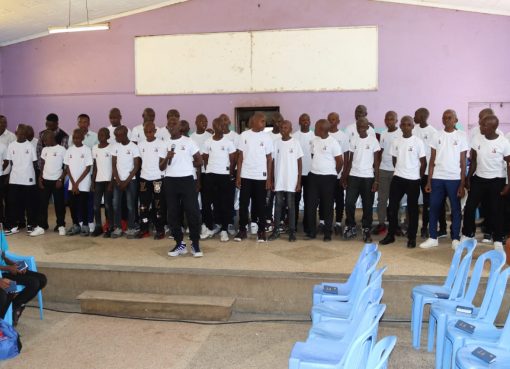Officers from the Ministry of Agriculture and Livestock development have underscored the need for dairy producers in Marakwet East and West to adhere to international quality standards so as to boost the profitability.
Gabriel Sang, an officer from the ministry, conveyed this message Monday while conducting a comprehensive training session for dairy farmers and dairy feed stockists at the CDF hall in Kapsowar town.
Lamenting the persistent production of subpar milk within the region, Sang highlighted that the current quality of milk being produced in Marakwet falls short of international standards required for exportation.
He emphasised that local farmers must embrace effective agricultural practices spanning every facet of milk production, transportation, and processing to align their output with global quality benchmarks.
A critical aspect of Sang’s guidance revolves around the paramount importance of maintaining hygiene during milk handling.
He urged farmers to utilise food-grade aluminum or plastic materials during milking and transportation processes to avert potential food contamination issues.
He articulated concerns regarding many farmers’ ongoing use of non-food-grade plastics, especially when transporting milk via boda bodas.
Such practices, he warned, expose consumers to the risk of consuming milk tainted by harmful substances.
“Our farmers still use plastic materials while milking and use the same material containers to transport them. Most of them we see carrying them with boda bodas, and unknowingly, consumers consume the milk without questioning the quality of the milk,” Sang stated gravely.
He emphasised that if this trend persists, consumers are likely to ingest unsafe milk, thereby compromising their health.
Sang extended his guidance to dairy feed stockists as well, asserting that the quality of animal feed significantly impacts the overall quality of milk produced.
He decried the use of substandard feeds, particularly feeds containing rotten maize that may harbor aflatoxins.
He said such feeds, when consumed by dairy animals, can lead to milk contamination and subsequent health hazards for both consumers and farmers and urged feed stockists to prioritise producing and distributing only high-quality feed to safeguard the integrity of the dairy industry.
Highlighting the need for increased milk production within the region, Sang issued a call to action for local farmers.
He urged them to elevate their milk production strategies, aiming not only to cater to local consumers but also to tap into lucrative export opportunities, noting that Marakwet East and West have the potential to become significant players in the global dairy market, provided that the necessary steps are taken to improve milk quality.
The training was met with enthusiasm and receptivity from the dairy farming community. Attendees of the training session expressed their eagerness to implement the recommended measures and refine their approaches to milk production.
By Rennish Okong’o





